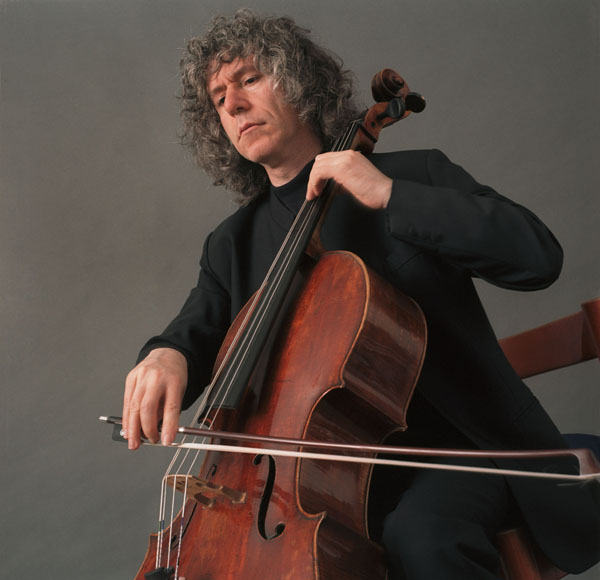A memorable Saturday night from Sunday Afternoons of Music
There were cellists aplenty in the audience—and a few violinists as well —for the return of Steven Isserlis, the British cellist who has not been heard in Miami for several seasons.
The event—a rare Saturday night recital for Sunday Afternoons of Music—brought back Isserlis, who holds a distinct reputation for enterprising repertoire as well as combustible music-making. And with a mix of intelligently quirky programming, symbiotic musical teamwork, and extraordinary musicianship as dynamic as it was deep, Isserlis and pianist Connie Shih provided one of the season’s most memorable concerts at Gusman Concert Hall.
In his Cello Sonata No. 2, Mendelssohn distributes the virtuosity equally between the two players, and from the first bars, Shih showed that she is no discreet accompanist but a fully-fledged partner. Both players launched into the music with dervish energy, Shih rattling off Mendelssohn’s rapid-fire passagework with steel-fingered articulation. The Allegretto had just the right light touch and Isserlis’s soulful expression in the Adagio richly displayed the burnished beauty of his 1730 “Feuermann” Stradivarius. The finale was almost comical in its blinding bravura, both players racing through Mendelssohn’s brilliant writing with astonishing accuracy and velocity.
The shaggy-haired cellist provided a wryly witty introduction to his own cello arrangement of Schumann’s Violin Sonata in A minor. Stating that Schumann was his favorite composer, Isserlis lamented the lack of cello works by the composer noting that, to the lasting bitterness of all cellists, Clara Schumann burned her husband’s Romances for the instrument (“She was a horrible woman,” said Isserlis.)
The confection made an interesting listen and both players certainly gave it impassioned advocacy with Isserlis’s yearning expression in the slow movement, richly idiomatic in its introspective melancholy. Elsewhere, the piece doesn’t translate that effectively to the lower-voiced instrument, with the outer movements’ flurry of notes sounding decidedly violinistic and emerging as hectic and overwritten on the cello.
The all-Czech second half offered two more curios. Martinu’s Cello Sonata No. 1 had its premiere in Paris the day before the Nazis marched into the city. That background is manifest in the music, with both players bringing out the aggressive angularity, and Isserlis particularly fine in conveying the Adagio’s spare, subdued tragedy. The nerve-wracked final movement culminates in a grinding dissonance, and Isserlis and Shih put across the violent intensity with great power and impact.
Of lighter expression is Janacek’s Pohadka, which takes its material from the same Russian fairy tale that inspired Stravinsky’s Firebird ballet. The music is utterly charming and Isserlis and Shih brought out the magic and piquant coloring, with an evocative story-telling delicacy and wide range of hues and dynamics.
Posted in Performances
Leave a Comment
Sun Mar 15, 2009
at 4:23 pm
No Comments
